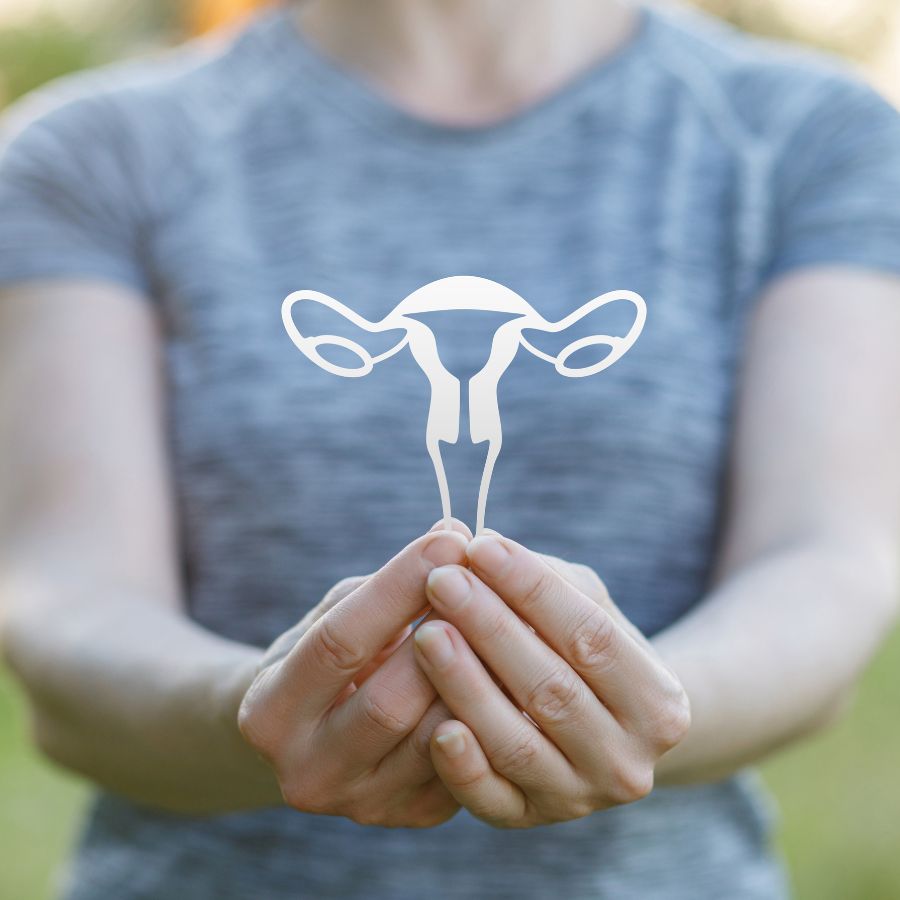
PCOS: Diagnosis, Research & Management
Polycystic Ovary Syndrome is a common endocrine disorder that affects people with ovaries, typically during their reproductive years.
Gynaecology > Uterine Cavity Assessment

Find Out More


If you are under 40 and have been having unprotected sexual intercourse every 2 – 3 days for one year without conceiving, we are here to help you discover the reasons why.
Our experienced team of specialists can evaluate your uterine health, hormone levels, and overall fertility. Please call us to book an appointment. It is advisable for both you and your partner to see a doctor, as fertility issues can affect both men and women.

Female fertility naturally begins to decline after age 30, and for women aged 36 or older, it is advised to consult with a doctor about fertility as soon as you start trying to conceive, as fertility tests can take time.
In cases of female infertility or subfertility, a uterine cavity assessment is recommended. This assessment allows the doctor to examine the shape of the uterus and fallopian tubes, and to check for structural or functional issues, including tumours, polyps, fibroids, cysts, adhesions, scarring, or endometriosis.
Assessing the uterine cavity involves various methods for evaluating its structure and health. Transvaginal ultrasound uses a probe to image the uterus and its lining, detecting issues like fibroids or polyps. Sonohysterography enhances this by injecting saline for clearer views.
Hysterosalpingography employs X-rays and contrast dye to visualise the cavity and fallopian tubes, identifying abnormalities such as polyps or adhesions. Hysteroscopy, a minimally invasive procedure, directly examines the uterine cavity to diagnose and treat conditions like fibroids or septums.
MRI provides detailed images when needed. Each method is chosen based on clinical indications, aiding in diagnosing fertility issues, abnormal bleeding, or other uterine health concerns effectively.


A uterine cavity assessment is recommended for:
Uterine cavity assessment is a crucial diagnostic tool in gynaecology and reproductive medicine, offering several significant benefits:
Use our online booking engine or book your test by giving us a call.
On the online booking engine select the “appointment type” you need.
You will be seen by one of our friendly doctors or trained clinicians.

Before undergoing a uterine cavity assessment, it is essential to understand the different types of procedures available and what each involves. Your healthcare provider will recommend the most appropriate assessment based on your symptoms and medical history. If possible, bring a friend or family member to provide support and help you get home if you receive sedation. Dress in comfortable, loose-fitting clothing on the day of the procedure.

Transvaginal Ultrasound (TVUS) uses a transducer in a private room to create uterine and ovarian images in 15 – 30 minutes with minimal discomfort. Hysterosalpingography (HSG) takes place in a radiology suite, where a speculum and catheter inject contrast dye to capture images filling the uterus and fallopian tubes in about 30 minutes, causing cramping. Lastly, Hysteroscopy employs a hysteroscope to view the uterus on a screen in an office or hospital, lasting 15 – 45 minutes with cramping managed by local anaesthesia or mild sedation.

After the procedure, you may rest for a short period before going home. It’s normal to experience mild cramping or spotting for a day or two. Your healthcare provider will discuss the findings with you, either immediately after the procedure or during a follow-up appointment. Based on the results, your provider will recommend the next steps, which may include further tests or treatment.
Incorporated
in 1998
Experienced doctors & a professional team
Registration
not needed
Up-to-date with the latest treatments & testing
Strictly
confidential
Experienced doctors & a professional team
Affordable private
health care
Transparent fee structure with no hidden charges
We work with experienced consultants & healthcare professionals who have received positive feedback from our patients, and with whom we have established long-term relationships.
Latest Episode
Tune in to our podcast to explore the world of healthcare and learn from distinguished special guests. We cover everything from preventative measures to cutting-edge treatments so that you can stay informed and up-to-date on health-related things.

Polycystic Ovary Syndrome is a common endocrine disorder that affects people with ovaries, typically during their reproductive years.

Menopause is a natural biological process that marks the end of a woman’s reproductive years, typically occurring between ages 45

Learn about vaginal discharge: its role, what’s normal, and when to be concerned. Stay informed for optimal health.
Subscribe for latest updates & news


From same-day private GP and blood test appointments to visa medicals, a sexual and reproductive health clinic, and preventative health screenings, we are here to help.
Contact Us
Accepted Insurance Companies






Please note that Walk-in Clinic is a private medical centre & not an NHS service. Harley Walk-in Clinic Ltd company registration no. 07472804